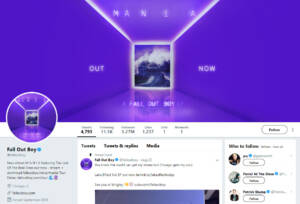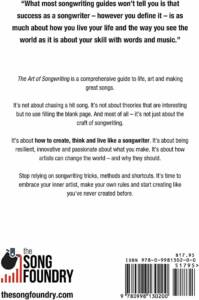Unlocking Your Creative Potential in Music Production

male songwriter writing song on blank music sheet
Introduction
The importance of creativity in music production
The importance of creativity in music production cannot be overstated. It is the driving force behind innovation and originality in the industry. Without creativity, music production would be limited to repetitive and formulaic compositions. Creativity allows producers to experiment with different sounds, techniques, and arrangements, resulting in unique and captivating music. It is what sets apart great producers from the rest, as it enables them to push boundaries and create groundbreaking tracks. Moreover, creativity is essential for connecting with listeners on an emotional level, as it allows producers to convey their thoughts, feelings, and experiences through their music. In a highly competitive industry, being creative is crucial for standing out and making a lasting impact. Therefore, nurturing and unlocking one’s creative potential is essential for success in music production.
Understanding the creative process
Understanding the creative process is essential for unlocking your full potential in music production. It involves exploring and experimenting with different ideas, techniques, and sounds to create something unique and innovative. The creative process is not linear and can vary from person to person, but it often involves stages such as inspiration, brainstorming, experimentation, and refinement. By understanding and embracing this process, you can tap into your creativity and produce music that truly reflects your artistic vision and style.
Challenges in unlocking creative potential
Unlocking creative potential in music production can be a challenging endeavor. As musicians, we often find ourselves facing various obstacles that hinder our ability to tap into our full creative capabilities. One of the main challenges is the fear of failure, which can prevent us from taking risks and exploring new ideas. Additionally, the pressure to meet industry standards and expectations can stifle our creativity and limit our artistic expression. Another common challenge is the lack of inspiration or creative blocks, where we struggle to come up with fresh and innovative ideas. However, by recognizing and addressing these challenges, we can develop strategies to overcome them and unlock our true creative potential in music production.
Exploring Different Music Genres
Understanding the characteristics of different music genres
Understanding the characteristics of different music genres is essential for unlocking your creative potential in music production. Each genre has its own unique elements, such as rhythm, melody, instrumentation, and lyrics, that contribute to its distinct sound and style. By studying and analyzing various genres, you can gain a deeper understanding of how different musical elements work together and how they can be creatively combined and manipulated. This knowledge can inspire you to experiment with different genres and push the boundaries of your own music production, allowing you to create innovative and captivating compositions that resonate with your audience.
Experimenting with different genres
Experimenting with different genres is a crucial aspect of unlocking your creative potential in music production. By exploring various musical styles, you can broaden your horizons and discover new sounds and techniques that can enhance your own unique style. Whether it’s delving into the world of jazz, experimenting with electronic music, or incorporating elements of classical music into your compositions, stepping outside of your comfort zone can lead to unexpected and exciting creative breakthroughs. Embracing different genres allows you to challenge yourself, push boundaries, and push the limits of what you thought was possible in your music production journey. So, don’t be afraid to explore and experiment with different genres – you never know what hidden gems you might uncover along the way.
Blending genres to create unique sounds
Blending genres to create unique sounds is a powerful technique that can unlock your creative potential in music production. By combining elements from different musical styles, you can create a truly original and innovative sound that sets you apart from other artists. Whether it’s fusing electronic beats with classical instruments or mixing hip-hop with jazz, blending genres allows you to break free from traditional boundaries and explore new sonic landscapes. This approach not only keeps your music fresh and exciting but also opens up endless possibilities for experimentation and self-expression. So, don’t be afraid to step outside of your comfort zone and embrace the art of blending genres to unlock your full creative potential in music production.
Developing a Creative Workflow
Setting up an inspiring workspace
Setting up an inspiring workspace is crucial for unlocking your creative potential in music production. Your workspace should be a reflection of your personality and style, creating an environment that inspires and motivates you. Start by organizing your equipment and cables in a neat and accessible manner. Consider adding elements that stimulate your senses, such as mood lighting, plants, or artwork. Additionally, ensure that your workspace is comfortable and ergonomic, with a supportive chair and proper lighting. By creating a space that is both visually appealing and functional, you will set the stage for productive and creative music production sessions.
Establishing a routine for creative sessions
Establishing a routine for creative sessions is essential for unlocking your creative potential in music production. By setting aside dedicated time for creative exploration, you create a space where ideas can flow freely and inspiration can strike. Whether it’s a specific time of day or a certain day of the week, having a consistent routine helps train your brain to be in a creative mindset. This routine allows you to focus solely on your music production without distractions, allowing you to fully immerse yourself in the process. Additionally, having a routine helps to build discipline and consistency, which are crucial for long-term growth and success in music production. So, take the time to establish a routine for your creative sessions and watch as your creative potential in music production unfolds.
Utilizing technology and tools for creativity
In today’s digital age, technology has revolutionized the music production process, providing musicians with a vast array of tools and resources to unlock their creative potential. From digital audio workstations (DAWs) to virtual instruments and plugins, these technological advancements have made it easier than ever for artists to experiment with different sounds, textures, and arrangements. Whether it’s using synthesizers to create unique melodies or manipulating samples to add depth and complexity to a track, the possibilities are endless. Additionally, the accessibility of technology has democratized music production, allowing aspiring musicians to create professional-quality music from the comfort of their own homes. By embracing and utilizing these tools, musicians can push the boundaries of their creativity and take their music production skills to new heights.
Overcoming Creative Blocks
Identifying and understanding creative blocks
Identifying and understanding creative blocks is crucial for unlocking your creative potential in music production. Creative blocks can manifest in various ways, such as a lack of inspiration, self-doubt, or feeling stuck in a repetitive cycle. By recognizing these blocks, you can begin to explore the underlying causes and develop strategies to overcome them. Whether it’s experimenting with new techniques, seeking inspiration from different genres, or taking a break to recharge, understanding your creative blocks is the first step towards unleashing your true artistic potential.
Techniques for overcoming creative blocks
When it comes to music production, creative blocks can be a frustrating obstacle to overcome. However, there are several techniques that can help unlock your creative potential and get the ideas flowing again. One effective technique is to take a break and engage in activities that inspire you, such as listening to music, exploring different genres, or attending live performances. Another approach is to experiment with new tools and techniques, such as using virtual instruments or incorporating unconventional sounds into your compositions. Additionally, collaborating with other musicians or seeking feedback from peers can provide fresh perspectives and spark new ideas. By employing these techniques, you can overcome creative blocks and tap into your full creative potential in music production.
Seeking inspiration from other artists
Seeking inspiration from other artists is a crucial aspect of unlocking your creative potential in music production. By studying the work of established musicians and exploring different genres, you can gain valuable insights and ideas that can elevate your own music. Whether it’s analyzing the production techniques used in a hit song or immersing yourself in the soundscape of a particular artist, drawing inspiration from others can help you expand your musical horizons and push the boundaries of your own creativity. Additionally, collaborating with fellow musicians and sharing ideas can spark new perspectives and innovative approaches to your music production process. Embracing the influence of other artists can ultimately lead to the development of a unique and distinctive musical style that sets you apart from the crowd.
Collaboration and Feedback
Benefits of collaboration in music production
Collaboration in music production offers numerous benefits that can greatly enhance the creative potential of musicians. One of the key advantages of working together is the opportunity to learn from each other’s unique skills and perspectives. By combining different musical backgrounds and experiences, collaborators can bring fresh ideas and innovative approaches to the table. Additionally, collaboration fosters a sense of camaraderie and teamwork, creating a supportive environment where artists can push their boundaries and explore new creative territories. Moreover, working with others can provide valuable feedback and constructive criticism, helping musicians refine their craft and improve their overall production quality. Overall, the benefits of collaboration in music production are undeniable, offering artists the chance to unlock their full creative potential and create music that is truly exceptional.
Finding the right collaborators
Finding the right collaborators is crucial in unlocking your creative potential in music production. Collaborating with like-minded individuals who share your passion and vision can elevate your music to new heights. Whether it’s finding a talented vocalist to bring your lyrics to life or a skilled producer to help refine your sound, the right collaborators can bring fresh perspectives and expertise to your creative process. Building a network of trusted collaborators also opens doors to new opportunities and connections within the music industry. So, take the time to seek out and nurture relationships with fellow musicians and industry professionals who can inspire and challenge you to push the boundaries of your creativity.
Giving and receiving constructive feedback
Giving and receiving constructive feedback is an essential aspect of unlocking your creative potential in music production. When you share your work with others and receive their input, you gain valuable insights and perspectives that can help you improve and grow as a musician. Constructive feedback allows you to identify areas of strength and areas that need improvement, enabling you to refine your skills and enhance your creative output. Additionally, giving feedback to others not only helps them in their artistic journey but also enhances your own understanding of music production. It allows you to analyze and articulate your thoughts, deepening your knowledge and appreciation for the craft. Embracing the process of giving and receiving constructive feedback fosters a collaborative and supportive community, where musicians can learn from one another and collectively elevate their creative potential.
Continual Learning and Growth
Importance of continual learning in music production
The importance of continual learning in music production cannot be overstated. In an ever-evolving industry, staying up-to-date with the latest techniques, technologies, and trends is crucial for unlocking your creative potential. By continuously learning and expanding your knowledge, you can push the boundaries of your music production skills and stay ahead of the competition. Whether it’s mastering new software, experimenting with different genres, or studying the works of renowned producers, continual learning allows you to refine your craft and discover new ways to express your musical ideas. Embracing a mindset of lifelong learning not only enhances your technical abilities but also fuels your creativity, enabling you to create unique and innovative music that resonates with your audience. So, make it a priority to invest time and effort into continual learning in music production, and watch your creative potential soar.
Exploring new techniques and technologies
In the ever-evolving world of music production, exploring new techniques and technologies is essential for unlocking your creative potential. With advancements in software, hardware, and digital tools, musicians and producers have endless possibilities to experiment and push the boundaries of their craft. Whether it’s diving into the world of virtual instruments, exploring innovative recording techniques, or harnessing the power of artificial intelligence, embracing new technologies can open up a whole new world of creativity. By staying curious and continuously learning, musicians can stay ahead of the curve and discover unique ways to express themselves through their music.
Seeking feedback and improving skills
Seeking feedback is an essential part of the creative process in music production. It allows us to gain valuable insights and perspectives from others, helping us to identify areas for improvement and refine our skills. By actively seeking feedback, we open ourselves up to new ideas and constructive criticism, which can ultimately lead to growth and development as music producers. Additionally, receiving feedback from a variety of sources, such as fellow musicians, producers, and industry professionals, can provide us with a well-rounded perspective and help us to broaden our musical horizons. Therefore, it is crucial to embrace feedback and use it as a tool to enhance our creative potential and continually evolve as music producers.








